Web3 is an Untapped Opportunity for Game Studios
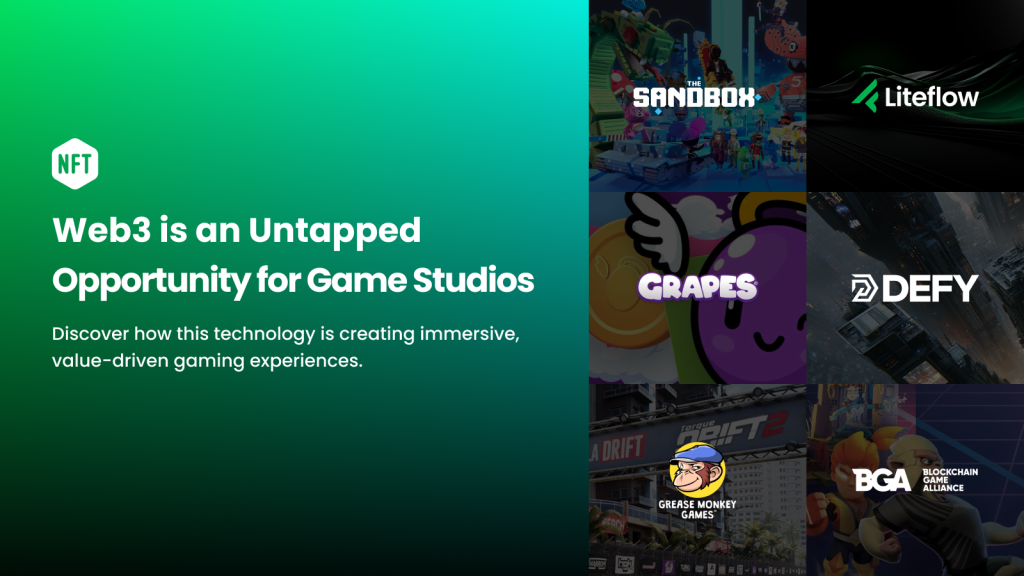
If you’re a game studio, you’ve probably heard about how blockchain infrastructure is being integrated into gaming ecosystems. This blockchain transformation is starting to look like the next big thing in gaming, and represents a nearly untapped goldmine for builders in the industry.
Right now, we’re at a pivotal moment in game development. Traditional gaming has always been about the pure enjoyment of playing, the challenge, and the story. Now, as technology advances, gamers expect more from their gaming experiences. Immersive worlds, deeper engagement, and even ownership of the experience is driving new expectations from gamers.
This is where Web3 holds the key for game studios, opening up a spectrum of value potential for both gamers and developers alike. From the ability to enhance in-game ownership, to new monetization potential, and even cross-game interoperability, blockchain is revolutionizing the very fabric of gaming and will drive visionary studios into the next era of the industry.
In this article we want to explore how integrating Web3 can transform your next game into a world of opportunity and innovation.
Why NFTs Matter to Game Developers
Alright, game devs, let’s cut to the chase. You’re crafting worlds, adventures, and experiences. However, NFTs have arrived with a lot of buzz around them, offering a potential game-changer (no pun intended) for the industry. So, as you’re sketching out your next gaming masterpiece, think about how NFTs can fit into that picture.
What’s This NFT Hype About?
NFTs, or Non-Fungible Tokens, are unique digital assets verified using blockchain technology. Unlike traditional in-game items, these blockchain assets are one-of-a-kind and owned exclusively by the player. With NFTs, in-game items become digital collectibles with a certificate of authenticity that can’t be replicated. The result is players can own, buy, sell, or trade their in-game assets just like physical items.
Incentivizing Game Engagement Growth
For you, the game studio, this is where the magic happens. Integrating Web3 into your games opens up a whole new economic model. Games can now be a place for players to be more engaged and invested because what they earn or find has real-world value. They’re not just playing; they’re engaging in a mini-economy that’s thriving within and around your game.
Engagement is propelled even further through the community building aspects of Web3. Players can jump into projects early and get involved in the actual production of the games. Never before have the communities of gamers surrounding a game had this much influence over the trajectory of the project. This enhances engagement and retention, as community members have vested interest in the success of games and the studios that develop them.
Build an NFT product with Liteflow
Game Studios Integrating Web3 into Gameplay
NFTs are already transforming games, with many powerful examples of smart implementation. You might be familiar with Axie Infinity, a virtual world full of NFT characters that can be battled, bred and collected in ways that enable gamers to earn and monetize their experience. When it comes to Web3 gaming, the Metaverse is taking NFT integration to the next level, and The Sandbox is leading this revolution. This gaming metaverse delivers an immersive experience for gamers, empowering them to create and monetize their work via NFTs (more on this later 😉).
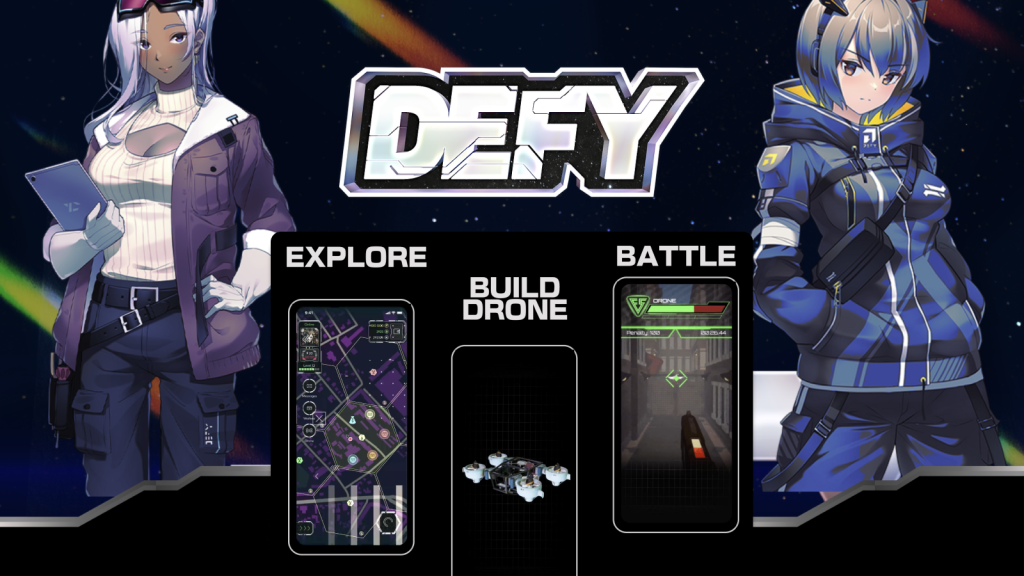
Another powerful example of the successful implementation of NFTs into gameplay can be found at DEFY. Their game offers an immersive play-and-earn platform, with a variety of in-game items and experiences existing as NFTs. Gaming assets like drones, drone components and even building resources are all tokenized as NFTs for players in-game. This dynamic gaming economy is a strong example of how to leverage tradable assets as tokens to enhance the user experience.
Liteflow is here to help game studios quickly integrate blockchain into their product, without the technological headaches and complexity. Finding trusted and usable resources as a developer is always a challenge, and in blockchain even more so. This is where Liteflow is helping global studios, providing infrastructure, tools, and knowledge to businesses looking to integrate Web3 into their product.
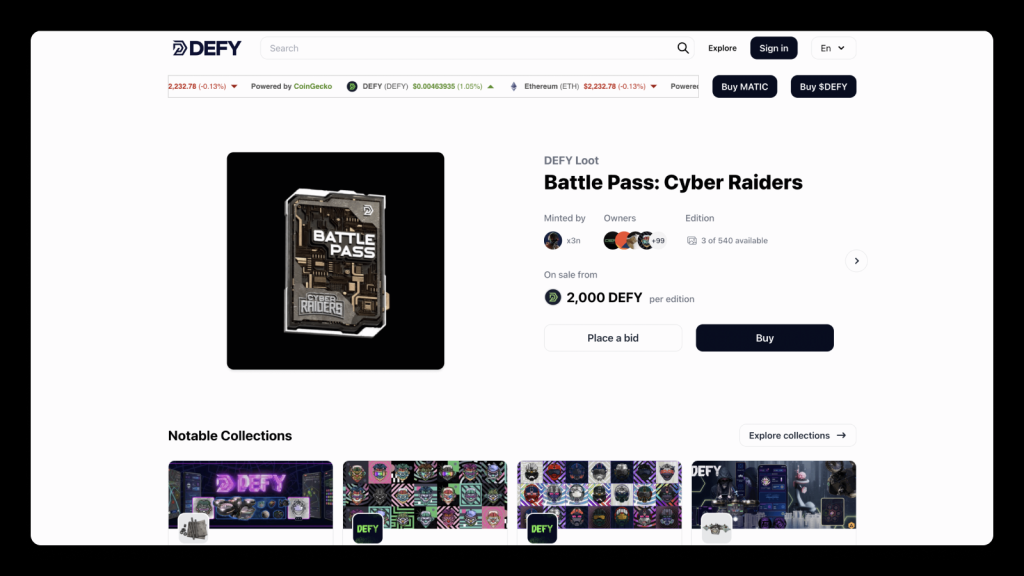
Using Liteflow’s NFT infrastructure, DEFY has implemented a sustainable strategy around Web3 gaming, the heart of which can be found in their marketplace, the DEFY Blackmarket. The ecosystem being developed here boosts engagement by incorporating all of the value of NFTs seamlessly into gameplay. The result is a bustling micro-economy surrounding their game, where users can have a much more fulfilling and potentially lucrative experience.
“Through our collaboration with Liteflow, DEFY is at the forefront of a gaming revolution. Liteflow’s cutting-edge blockchain technology has enabled us to create a marketplace that is not just a feature, but the heartbeat of our game. This partnership has allowed us to seamlessly integrate NFTs into our gaming world, offering players an unparalleled experience of ownership and trade. With Liteflow, we’re not just building games; we’re crafting economies, fostering community engagement, and pioneering a new era where gaming transcends traditional boundaries to become a fully immersive, economically viable universe. Our journey with Liteflow is a testament to the power of innovative technology in reshaping the gaming landscape.”
Ben Pember, CEO & co-founder of DEFY
What’s the Deal with Gaming Ownership and Profit
Traditional gaming often misses one key element: true ownership. Players spend countless hours building, earning, and achieving, but what do they really own? Not much. NFTs flip this on its head. Now, that epic sword or rare artifact they’ve grinded for hours to obtain? It’s truly theirs, to keep or sell. It’s a real reward for their gaming prowess.
This isn’t just about adding a cool new feature. It’s about fundamentally changing how players interact with your game. It’s about giving them a stake in the game world you’ve created. And let’s be honest, when players feel ownership, their engagement skyrockets. They’re not just playing a game; they’re part of a living, breathing digital economy.
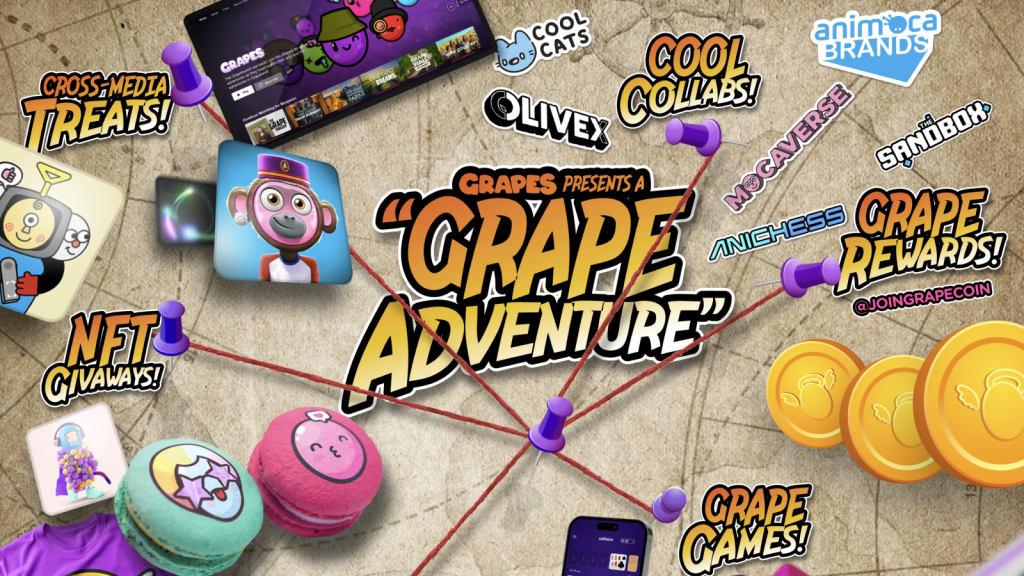
The gaming ecosystem that Grapes is building using Web3 can be considered a blue-print for other studios entering the space. Their focus on empowering gamers with digital ownership is setting a standard for innovative gaming projects. With a vision of creating a global entertainment IP giant, Grapes is using blockchain to develop not just one game but an entire ecosystem. An NFT collection, $GRAPE token, and six individual games are just the beginning for this fully integrated game studio.
“Our goal is to create a cross-media, family-friendly entertainment IP that transcends Web3 with gaming, TV, products & licensing at the heart. Web3 has provided the tools for Grape NFT’s and $GRAPE holders to own part of the success and join us on our journey, something not possible in traditional Web2.”
Ben Cusack, Founder of Grapes
Build an NFT product with Liteflow
Transforming Game Economics with NFTs
You know the drill in traditional games: players collect items, level up, maybe trade within the game, but it all stays in the virtual world. Now, let’s add NFTs into the mix and watch the game change.
Bridging Worlds On-Chain
Web3 gaming infrastructure enables studios to explore how our physical world can integrate with our digital world. Thanks to NFTs, in-game achievements and collections carry a value that goes beyond the game, opening the door to a range of creative exploration.
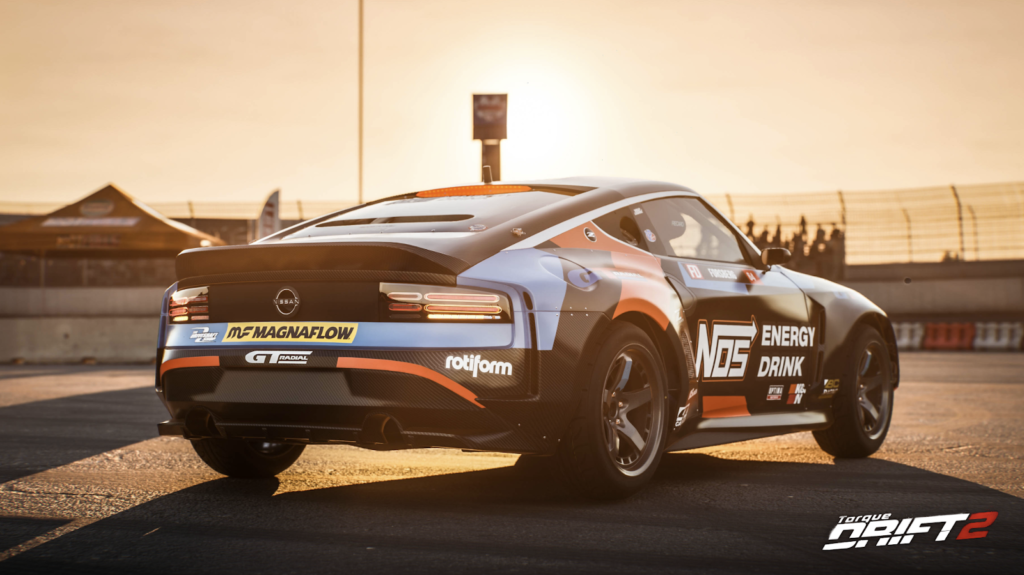
Some really inspiring work is being done here from Grease Monkey Games, and their groundbreaking new release, Torque Drift 2. Real-world drift culture is vividly integrated into the game, reflecting everything from Tokyo’s street racing to professional events around the globe. This dedication to authenticity extends to their approach to in-game NFT collectibles.
The supply of limited edition items, like digital vehicle collectibles, is determined based on real-world production numbers. This approach ensures a realistic and varied collection of cars, mirroring the actual rarity and uniqueness of specific models and paint codes. For instance, the Nissan 180sx’s availability in the game is proportional to its real-life production, with each submodel and paint code having its distinct rarity, ranging from common to one-of-a-kind, reflecting their real-world legacy.
“Blockchain technology is the natural progression of the digital world we live in today. My hope is that as the technology matures and adoption increases that it’s gaming focus will shift from price speculation, towards a player driven UGC economy focused on collection and digital ownership. Ultimately enabling a fair economy for the value that players generate within games these days”
Billy Sullivan, COO of Grease Monkey Games
Shared Experiences & Partnerships to Drive the Future of Gaming
The integration of NFTs isn’t just about trading in-game assets and ownership. It’s about furthering the Web3 ethos of community and empowering creators. The Sandbox is pioneering a model where NFTs enhance unique collaborations between brands, studios, and products. User-Generated Content (UGC) is prone to be an integral part of the future of gaming, allowing players to turn into creators and extend the lifetime of their favorite games by adding not just their own characters or levels but creating their own experiences, turning games into content platforms and powerful ecosystems. This is where Web3 comes in, supporting wholly the Creators Economy that powers these UGC games & platforms. This approach elevates the gaming experience by allowing players to blend their favorite ecosystems into a singular, enriched experience.
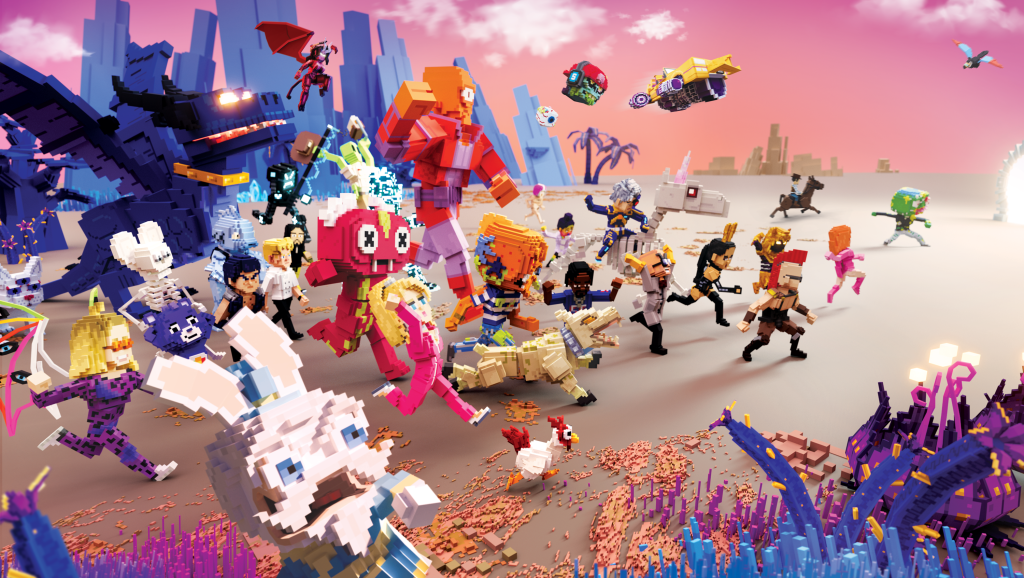
The Sandbox is a decentralized virtual world where users can create and own 3D content, supported by blockchain. In a recent interview for NFTVerse, Sandbox co-founder and COO, Sebastien Borget goes into detail on his vision for these new gaming experiences.
Check out this insightful interview, in which Sebastien and Emmanuel from Liteflow explore how the Sandbox model promotes community involvement and allows for unique collaborations, enhancing user experiences across different gaming ecosystems. This approach is how they secured partnerships with 400 major brands, 5 million users, and numerous creators who build diverse virtual experiences.
Sebastien’s vision for Web3 gaming doesn’t start and end with The Sandbox, which is why is the current president of The Blockchain Game Alliance. The alliance is focused on educating businesses on blockchain within the game industry, spreading awareness of this technology and promoting its adoption to create, publish, play, and build strong communities around games.
“Game Studios and Creators should envision the benefit of blockchain technology not from a monetization perspective, but as a facilitator for Engagement, Retention, Community Building and even the discovery and User Acquisition. The technology is reaching a maturity phase with better tooling, UX, Wallets solutions and as shown in our 2023 Industry Survey Report, is being explored by both indie and large established game companies, 2024 will certainly be a promised year to watch for new game launches that use Blockchain in novel ways”
Sebastien Borget, COO & Co-Founder of The Sandbox and President of the Blockchain Game Alliance
Conclusion
Game studios are standing on the cusp of a new frontier in gaming. The integration of Web3 and NFTs represent an evolution in how games are played, owned and experienced. Studios and developers that adopt this technology aren’t only upgrading their gaming infrastructure, but driving the adoption of a new era of immersive, value-driven gaming experiences.
This is a chance to lead the charge, to transform virtual adventures into meaningful, engaging ecosystems that not only elevate the user experience but open new economic opportunities for studios and developers. If you’re a game studio eager to delve into Web3 and NFT integration, schedule a meeting with us to discuss your project and discover how Liteflow can support you.